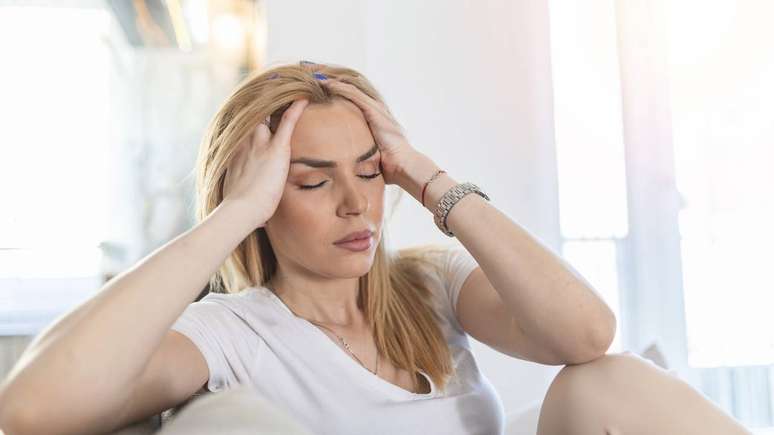Contrary to what many might think, the drop in hormonal levels does not necessarily alleviate this type of headaches, more common in women.
Those who live with migraine attacks – characterized by intense headache, dizziness, sensitivity to light and smells, vomiting and irritability – know how much they can compromise social, familiar and professional life. THE World Health Organization (WHO) Ranks this pathology as the second most disabling in the world, behind only back pain. Women are more affected, especially due to hormonal influence, for example during menopause.
Migraine attacks throughout life
“It is estimated that the disease affects a third of men to two thirds of women”highlights the neurologist specialized in headache, Tiago de Paulamember International Society against headaches (IHS) and the Brazilian society for headaches (SBC). “Despite being a genetic disease, hormones like estrogen influence the sensitivity and prevalence of symptoms.” Therefore, it is common to believe that crises decrease with the arrival of menopause, a period in which female hormonal levels decrease drastically.
For about two thirds of women, in fact, this phase can represent a significant reduction in the frequency and intensity of the episodes. However, relief is not the rule. “In the transition to menopause, it is very common that women suffer more than the disease due to the hormonal fluctuations typical of this phase. Over time, these substances stabilize for a while at lower levels and the crises tend to improve”explains the gynecologist Helena Hachulprofessor of the discipline of Women’s health at the Faculty of Medicine of the Einstein Israelita Hospital.
Importance of treatment
However, it is essential that women suffering from this condition do not stop taking care of it. “Migraine is a complex disease that can persist in the form of dizziness, sleep disorders, muscle pains, mood changes and even hot flashes of neurological origin, factors that should not be ignored”He warns Tiago De Paula.
Hence the importance of seeking help in all stages of life, avoiding that the condition becomes chronic. “It is important to analyze the context of menopause: if the woman has completely stopped having menstruation or has gone through a transition with many hormonal fluctuations, for example. The doctor will also evaluate the symptoms, if there is a change in the model of the attacks, how long they last, if there is pain pain, among other factors. All this helps to direct and indicate the best treatment”Einstein’s gynecologist says.
Go to the doctor
In these consultations, doctors also identify the factors that could worsen the condition, such as the excessive consumption of drug malfachable drugs. Often these remedies do not solve the problem and can even cause a rebound effect, intensifying discomfort.
This individualized evaluation can also prevent the situation worse. “A crucial point is hormonal replacement therapy: many menopause women are recommended to replace estrogen to relieve hormonal symptoms, but in patients with migraine with aura this replacement may involve an increase in the risk of cardiovascular and stroke events”warns the neurologist.
Keep healthy habits – such as adequate hydration, quality sleep, a balanced diet and regular physical activity – is essential to reduce the risk of crisis. “It is also important to avoid factors such as stress and consumption of alcoholic beverages in this phase of life”Recommend Hachul.
*Text by Thais Szegö, by Agência Einstein
Source: Terra
Ben Stock is a lifestyle journalist and author at Gossipify. He writes about topics such as health, wellness, travel, food and home decor. He provides practical advice and inspiration to improve well-being, keeps readers up to date with latest lifestyle news and trends, known for his engaging writing style, in-depth analysis and unique perspectives.








